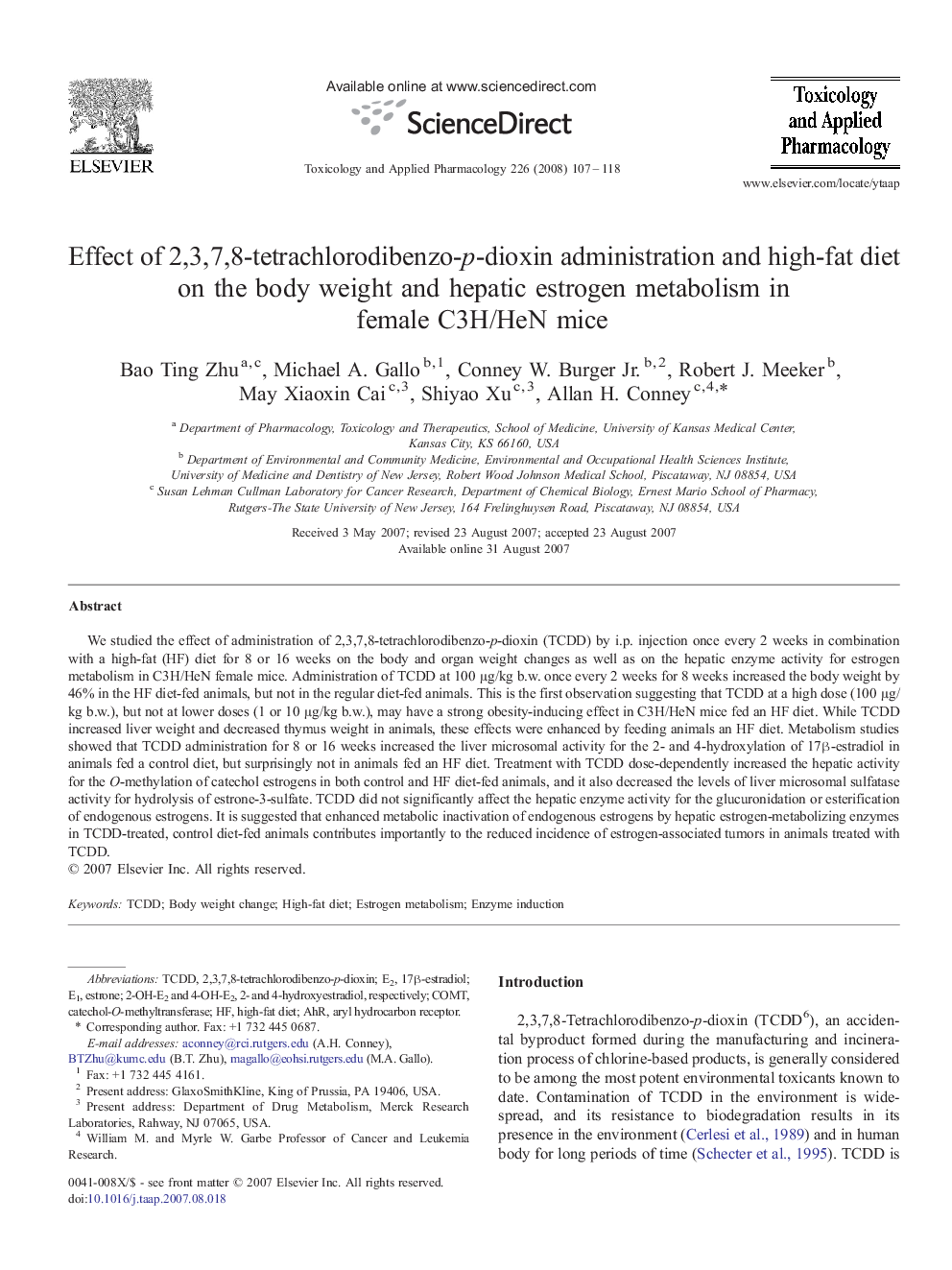| Article ID | Journal | Published Year | Pages | File Type |
|---|---|---|---|---|
| 2570796 | Toxicology and Applied Pharmacology | 2008 | 12 Pages |
We studied the effect of administration of 2,3,7,8-tetrachlorodibenzo-p-dioxin (TCDD) by i.p. injection once every 2 weeks in combination with a high-fat (HF) diet for 8 or 16 weeks on the body and organ weight changes as well as on the hepatic enzyme activity for estrogen metabolism in C3H/HeN female mice. Administration of TCDD at 100 μg/kg b.w. once every 2 weeks for 8 weeks increased the body weight by 46% in the HF diet-fed animals, but not in the regular diet-fed animals. This is the first observation suggesting that TCDD at a high dose (100 μg/kg b.w.), but not at lower doses (1 or 10 μg/kg b.w.), may have a strong obesity-inducing effect in C3H/HeN mice fed an HF diet. While TCDD increased liver weight and decreased thymus weight in animals, these effects were enhanced by feeding animals an HF diet. Metabolism studies showed that TCDD administration for 8 or 16 weeks increased the liver microsomal activity for the 2- and 4-hydroxylation of 17β-estradiol in animals fed a control diet, but surprisingly not in animals fed an HF diet. Treatment with TCDD dose-dependently increased the hepatic activity for the O-methylation of catechol estrogens in both control and HF diet-fed animals, and it also decreased the levels of liver microsomal sulfatase activity for hydrolysis of estrone-3-sulfate. TCDD did not significantly affect the hepatic enzyme activity for the glucuronidation or esterification of endogenous estrogens. It is suggested that enhanced metabolic inactivation of endogenous estrogens by hepatic estrogen-metabolizing enzymes in TCDD-treated, control diet-fed animals contributes importantly to the reduced incidence of estrogen-associated tumors in animals treated with TCDD.
